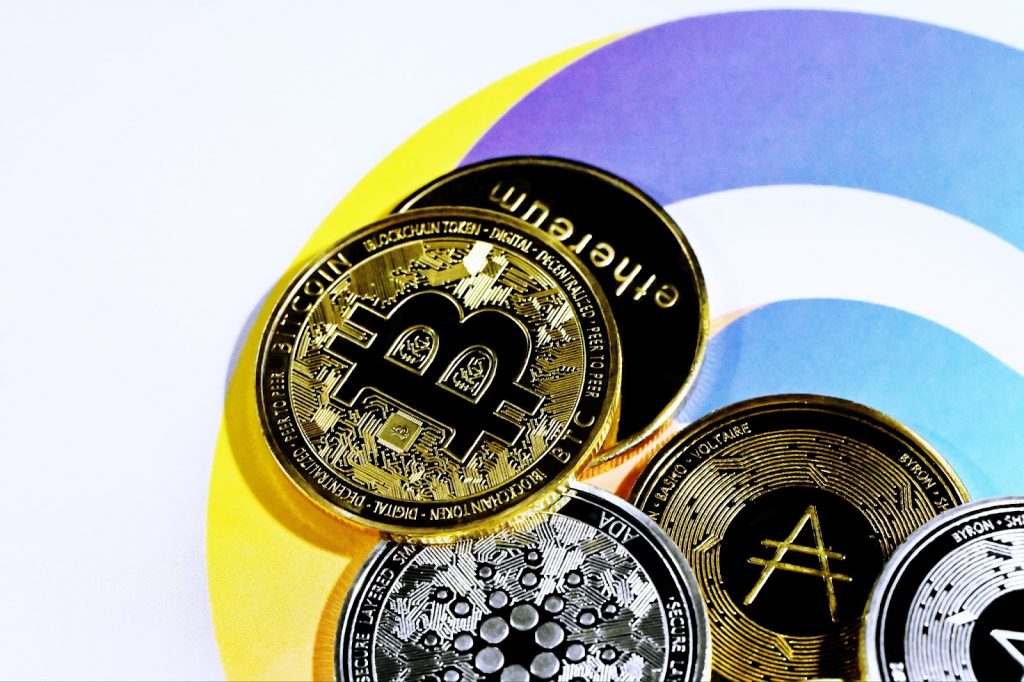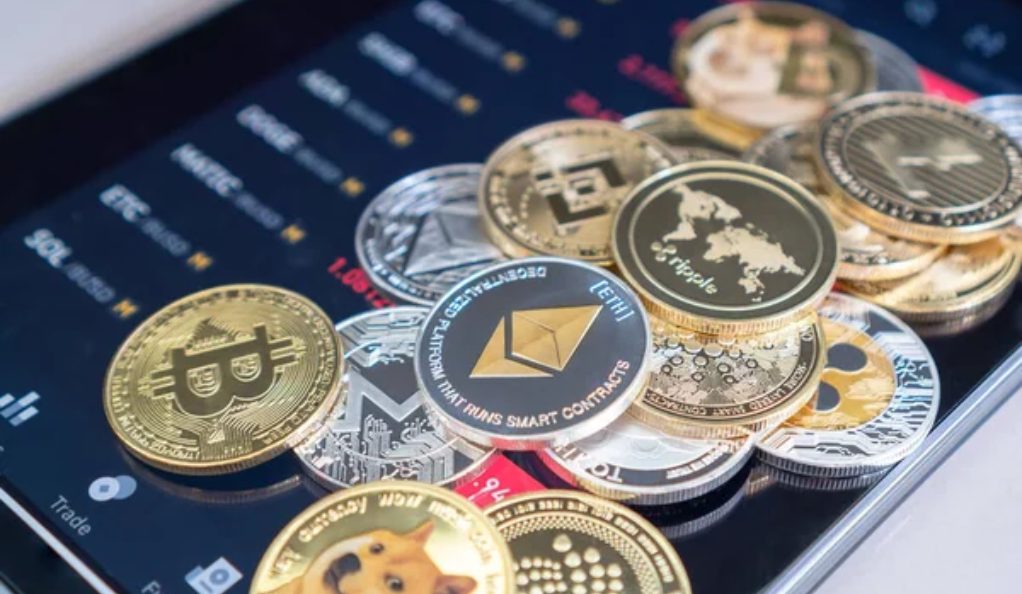
Table of Contents
- The Rise of Altcoins
- Why Altcoins Matter
- Understanding Cryptocurrency Basics
- Exploring Altcoins
- Getting Started with Altcoin Investments
- Altcoin Investment Strategies
- Mitigating Risks and Security Measures
- Tax Implications of Altcoin Investments
- Altcoin Market Analysis and Trends
- Altcoin Investing for the Future
- Conclusion
- Frequently Asked Questions (FAQs)
The Rise of Altcoins
Altcoins have emerged as a significant part of the cryptocurrency ecosystem, gaining traction alongside Bitcoin. These alternative cryptocurrencies offer unique features, innovative technologies, and diverse use cases that differentiate them from Bitcoin. With the increasing interest and adoption of cryptocurrencies, altcoins have witnessed a notable rise in popularity, attracting investors, developers, and users worldwide.
Why Altcoins Matter
Altcoins matter because they contribute to the evolution and expansion of the cryptocurrency landscape. They foster competition, driving innovation and advancements in blockchain technology. Altcoins offer opportunities for diversification in investment portfolios and provide avenues for specialized applications and functionalities. Moreover, altcoins address specific market needs and cater to niche communities, expanding the possibilities of decentralized finance, smart contracts, and other blockchain-based solutions. Understanding the rise and significance of altcoins is crucial for anyone looking to navigate the dynamic world of cryptocurrencies.
Understanding Cryptocurrency Basics

What is Cryptocurrency?
Cryptocurrency is a digital or virtual form of currency that utilizes cryptography for secure financial transactions, control the creation of new units, and verify the transfer of assets. It operates on decentralized networks, typically powered by blockchain technology, ensuring transparency, security, and immutability. Cryptocurrencies provide an alternative to traditional centralized systems and enable peer-to-peer transactions without the need for intermediaries like banks.
Key Differences Between Altcoins and Bitcoin
Altcoins, which stands for alternative coins, refer to all cryptocurrencies other than Bitcoin. While Bitcoin was the first cryptocurrency, altcoins have since emerged with various innovations and features. Some key differences between altcoins and Bitcoin include different consensus algorithms, mining processes, use cases, supply mechanisms, and underlying technologies. Altcoins often aim to address limitations or offer enhancements to Bitcoin’s functionality, creating a diverse ecosystem of digital currencies.
The Role of Blockchain Technology
Blockchain technology serves as the foundation for cryptocurrencies, including altcoins. It is a distributed and decentralized ledger that records all transactions across multiple computers or nodes. Blockchain ensures transparency and security by making transaction information publicly verifiable and tamper-resistant. Through consensus mechanisms, such as proof of work or proof of stake, blockchain networks validate and add new transactions to the ledger. This technology eliminates the need for a central authority, facilitates trust between participants, and enables the immutable recording of transactions.
Understanding the basics of cryptocurrency, the distinctions between altcoins and Bitcoin, and the role of blockchain technology provides a solid foundation for navigating the world of digital currencies.
Exploring Altcoins

Popular Altcoins in the Market
Among the various altcoins in the market, Ethereum (ETH) stands out as one of the most prominent and widely recognized. Ethereum is not only a cryptocurrency but also a platform that enables developers to build decentralized applications (DApps) and smart contracts. With its robust infrastructure and programmable blockchain, Ethereum has paved the way for innovative projects and has gained significant adoption and community support.
Curious about altcoins? Discover the exciting realm of alternative cryptocurrencies with eToro, a leading platform renowned for its altcoin trading services. Learn the basics, explore diverse altcoin options, and leverage eToro’s user-friendly interface to navigate this dynamic market. Embrace the potential of altcoins and embark on your cryptocurrency journey with eToro today.
Factors Influencing Altcoin Prices
Market capitalization, or market cap, plays a crucial role in determining the price of an altcoin. It is calculated by multiplying the current price of the altcoin by the total number of coins in circulation. Altcoins with larger market capitalizations often have higher liquidity and may attract more investor interest. However, it is important to note that market cap alone does not guarantee the success or sustainability of an altcoin.
The law of supply and demand influences altcoin prices. If there is a high demand for a particular altcoin but a limited supply available, the price may increase. Conversely, if the supply surpasses the demand, the price may decline. Factors such as utility, adoption, and investor sentiment contribute to the demand for altcoins.
The technological advancements and development progress of an altcoin can significantly impact its price. Innovations, protocol upgrades, partnerships, and the introduction of new features can attract attention and drive up the value of an altcoin. Conversely, any technical vulnerabilities, security concerns, or delays in development may negatively affect its price.
The regulatory landscape surrounding cryptocurrencies can have a substantial impact on altcoin prices. Government regulations, legal frameworks, and restrictions imposed on the use or trading of altcoins can create uncertainty and volatility in the market. News related to regulatory developments often influences investor sentiment and can cause price fluctuations.
The overall sentiment and perception of the cryptocurrency market can also influence altcoin prices. Positive news, market trends, media coverage, and investor confidence can contribute to a bullish market sentiment, driving up altcoin prices. On the other hand, negative news, market downturns, or concerns about the overall crypto market can lead to a bearish sentiment and downward price movements.
Understanding the factors that influence altcoin prices provides insights into the dynamics of the market and assists investors in making informed decisions. It is essential to conduct thorough research and analysis while considering these factors in the context of individual altcoins before making investment choices.
Getting Started with Altcoin Investments
Setting Up a Digital Wallet
To begin investing in altcoins, it is important to set up a digital wallet. A digital wallet is a secure software or hardware device that allows you to store, send, and receive altcoins. Choose a reliable and reputable wallet that supports the altcoins you wish to invest in. Ensure that you follow the recommended security practices, such as enabling two-factor authentication and keeping your private keys secure.
Choosing the Right Altcoin Exchange
Selecting the right altcoin exchange is crucial for a smooth and secure investment experience. Consider factors such as the exchange’s reputation, user interface, trading fees, available altcoins, liquidity, and regulatory compliance. Research and compare different exchanges to find one that suits your investment goals and requirements.
Factors to Consider Before Investing
Before investing in altcoins, it is essential to conduct thorough research and due diligence. Consider the following factors:
Understand the purpose, technology, team, and community behind the altcoin. Assess its potential for growth, adoption, and utility. Analyze the altcoin’s whitepaper, roadmap, and past performance to gain insights into its viability as an investment.
Study the altcoin’s market trends, historical price movements, and trading volumes. Analyze the altcoin’s performance in comparison to other cryptocurrencies and the overall market. Consider market indicators and factors that may influence the altcoin’s price.
Evaluate the potential risks associated with investing in the altcoin. Consider factors such as regulatory risks, market volatility, competition, technological vulnerabilities, and team credibility. Diversify your portfolio to mitigate risks and consider your risk tolerance before investing.
Develop a clear investment strategy based on your financial goals, time horizon, and risk appetite. Determine your entry and exit points, profit targets, and stop-loss levels. Regularly review and adjust your strategy as market conditions evolve.
By setting up a digital wallet, choosing a reputable altcoin exchange, conducting thorough research, and developing a well-defined investment strategy, you can navigate the world of altcoin investments more effectively. Remember to stay informed, stay vigilant, and only invest what you can afford to lose.
Altcoin Investment Strategies
- Long-Term Hold
One popular strategy is to invest in altcoins with strong long-term potential. This approach involves researching and selecting altcoins with promising technology, active development, and a solid use case. The goal is to hold onto these altcoins for an extended period, allowing for potential growth and value appreciation over time.
- Swing Trading
Swing trading involves taking advantage of short-term price fluctuations in the altcoin market. Traders aim to profit from the price swings by buying low and selling high within a relatively short time frame. This strategy requires technical analysis skills and monitoring market trends to identify potential entry and exit points.
- Dollar-Cost Averaging (DCA)
Dollar-cost averaging is a strategy that involves investing a fixed amount of money in altcoins at regular intervals, regardless of the market price. This approach helps to mitigate the impact of short-term price volatility. By consistently investing over time, investors can accumulate altcoins at different price levels, potentially reducing the overall average cost.
- Initial Coin Offerings (ICOs)
ICOs offer an opportunity to invest in altcoins during their early stages. Investors can participate in ICOs by purchasing tokens before they are listed on exchanges. However, ICOs come with higher risks, as the projects may be at an early stage of development. Thorough research and due diligence are crucial when considering ICO investments.
- Decentralized Finance (DeFi) Opportunities
Decentralized Finance, or DeFi, has emerged as a prominent sector within the cryptocurrency ecosystem. DeFi offers various investment opportunities, such as lending, staking, yield farming, and liquidity provision. Investors can explore DeFi platforms and protocols to earn passive income or take advantage of arbitrage opportunities.
It is important to note that these investment strategies come with their own risks, and it is crucial to conduct thorough research, understand the market dynamics, and assess your risk tolerance before implementing any strategy. Consider diversifying your portfolio and staying updated with market trends and regulatory developments to make informed investment decisions.
Mitigating Risks and Security Measures

Protecting your altcoin investments requires implementing robust security measures. This includes using secure digital wallets with strong encryption and two-factor authentication (2FA). Keep your private keys offline and backup your wallet to safeguard against data loss. Additionally, consider using hardware wallets for an added layer of security.
The altcoin market is susceptible to scams, so it’s crucial to be vigilant and exercise caution. Be wary of investment opportunities that promise unrealistic returns or lack transparency. Avoid sharing sensitive information with untrusted sources and carefully verify the legitimacy of projects and ICOs before investing. Stay informed about common scams and educate yourself on red flags to avoid falling victim to fraudulent schemes.
Stay updated with the latest news and developments in the altcoin market. Monitor reputable cryptocurrency news sources, social media channels, and official project announcements. Being informed about market trends, regulatory changes, and technological advancements can help you make more informed investment decisions. Participate in online communities and forums to engage with experienced traders and gain insights into market dynamics.
Regularly review and reassess your investment strategy to adapt to changing market conditions. Keep track of your investments and maintain a diversified portfolio to mitigate risks. Additionally, consider setting realistic expectations and avoid making impulsive investment decisions based on hype or FOMO (Fear Of Missing Out).
Remember, protecting your digital assets and staying informed are key to mitigating risks and ensuring a secure altcoin investment journey.
Tax Implications of Altcoin Investments
Altcoin investments are subject to taxation based on the tax policies and regulations of your jurisdiction. It’s essential to understand the specific rules regarding cryptocurrency taxation in your country. Tax authorities may classify altcoins as property, assets, or securities, and different tax rates or reporting requirements may apply.
When it comes to reporting altcoin gains and losses for tax purposes, you typically need to keep detailed records of your transactions. This includes documenting the date of acquisition, purchase price, sale price, and any associated transaction fees. Calculate the capital gains or losses incurred during the holding period of the altcoins and report them accurately on your tax return.
Consult with a tax professional or accountant who specializes in cryptocurrency taxation to ensure compliance with the applicable laws and regulations. They can provide guidance on proper reporting procedures, eligible deductions, and any specific requirements related to altcoin investments.
Remember that tax laws can evolve, so it’s essential to stay updated on any changes or updates in cryptocurrency taxation policies. By fulfilling your tax obligations and accurately reporting altcoin gains and losses, you can ensure a smooth and compliant investment experience.
Altcoin Market Analysis and Trends
- Altcoin Market Overview
The altcoin market consists of a wide range of cryptocurrencies other than Bitcoin. It is essential to have a comprehensive understanding of the altcoin market, including its size, liquidity, and overall market sentiment. Monitoring market trends and developments can provide valuable insights for altcoin investors.
- Identifying Market Trends and Patterns
Analyzing market trends and patterns is crucial for making informed investment decisions. Technical analysis tools and chart patterns can help identify trends, such as uptrends, downtrends, and sideways movements. Recognizing support and resistance levels, trend lines, and moving averages can assist in determining potential entry and exit points.
- Analyzing Altcoin Price Charts
Altcoin price charts provide valuable information about historical price movements, volume, and market sentiment. Candlestick charts, line charts, and other chart types can be used to analyze altcoin prices over different timeframes. Traders often use technical indicators like moving averages, relative strength index (RSI), and MACD to gain insights into price momentum and potential trend reversals.
By conducting thorough market analysis and monitoring trends, investors can better understand the altcoin market dynamics and identify potential opportunities. It is important to combine technical analysis with fundamental analysis, considering factors like project fundamentals, team expertise, partnerships, and market adoption when evaluating altcoin investments.
Altcoin Investing for the Future
- Altcoins and the Future of Finance
Altcoins play a significant role in shaping the future of finance. They offer innovative solutions and technologies that have the potential to disrupt traditional financial systems. Altcoins facilitate decentralized finance (DeFi), smart contracts, and other groundbreaking applications, opening up new possibilities for financial inclusion and efficiency.
- Predictions and Speculations
Investing in altcoins involves considering predictions and speculations about their future performance. Market experts, analysts, and enthusiasts make forecasts based on factors like technological advancements, market trends, regulatory developments, and adoption rates. However, it’s important to note that these predictions come with uncertainties and risks, and investors should conduct their own research and exercise caution.
- Innovations Driving Altcoin Development
Altcoin development is driven by constant innovation. Blockchain technology advancements, scalability solutions, privacy enhancements, interoperability, and governance mechanisms are some of the areas where altcoins strive for improvement. Altcoin projects that bring meaningful innovations to the table may attract attention and investment, as they have the potential to shape the future landscape of cryptocurrencies.
Investors interested in altcoins should stay informed about emerging technologies, keep track of industry developments, and assess the potential impact of innovations on specific altcoins. It is essential to remain vigilant, diversify investments, and make informed decisions based on thorough research and analysis.
Conclusion
Altcoins have emerged as a dynamic and diverse sector within the cryptocurrency market, offering investors a range of opportunities and challenges. As the cryptocurrency ecosystem continues to evolve, it is crucial for investors to understand the basics, conduct thorough research, and stay updated on market trends. While altcoin investments carry risks, they also present exciting possibilities for long-term growth and innovation in the future of finance.
By implementing sound investment strategies, mitigating risks, and staying informed, investors can navigate the altcoin market with greater confidence. As with any investment, it is important to exercise caution, diversify portfolios, and seek professional advice when needed. With a thoughtful approach and ongoing vigilance, investors can position themselves for potential success in the ever-evolving world of altcoin investing.
Frequently Asked Questions (FAQs)
What are Altcoins?
Altcoins refer to all cryptocurrencies other than Bitcoin. They encompass a wide range of digital currencies with diverse features and purposes.
How do Altcoins differ from Bitcoin?
Altcoins differentiate themselves from Bitcoin by introducing various modifications, such as different consensus algorithms, use cases, and additional features like smart contracts.
How can I invest in Altcoins?
To invest in Altcoins, you need to follow these steps: set up a digital wallet, choose a reliable altcoin exchange, conduct thorough research, and make informed investment decisions.
Are Altcoins risky investments?
Yes, investing in Altcoins carries risks. Altcoin markets are highly volatile, and the value of Altcoins can fluctuate significantly. It’s important to understand the risks involved and only invest what you can afford to lose.
What are the tax implications of Altcoin investments?
Tax regulations regarding Altcoin investments vary by country. Generally, Altcoin gains are subject to taxation, and it’s important to report your gains and losses accurately to comply with tax laws.
How can I secure my Altcoin investments?
To secure your Altcoin investments, use secure digital wallets, enable two-factor authentication, keep your private keys offline, and stay vigilant against phishing attacks and scams.
What are the future prospects for Altcoins?
The future prospects for Altcoins are promising. They are driving innovations in decentralized finance (DeFi) and other emerging technologies. However, the market is dynamic, and future prospects depend on various factors like adoption, regulatory developments, and technological advancements.
WeInvests is a financial portal-based research agency. We do our utmost best to offer reliable and unbiased information about crypto, finance, trading and stocks. However, we do not offer financial advice and users should always carry out their own research.
Read More







